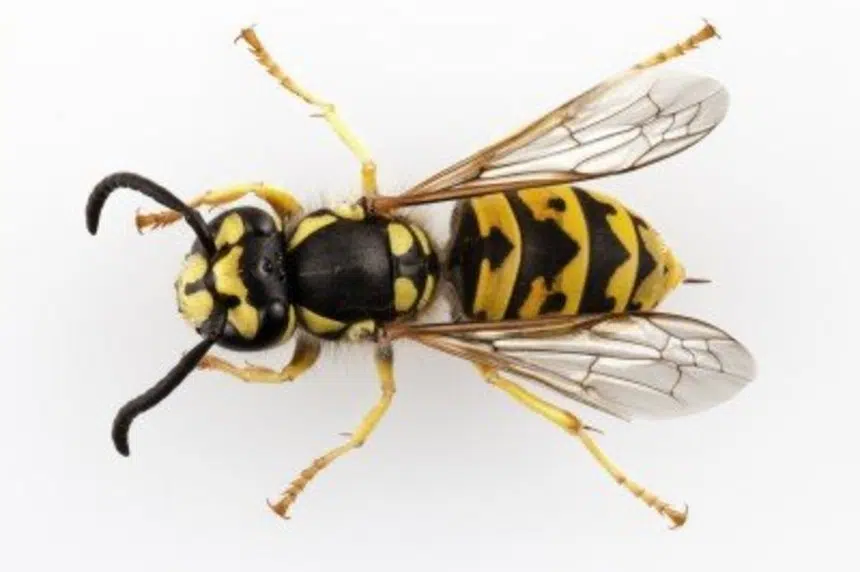If you’ve been spending time relaxing in your backyard this summer, you’ve likely been having to do plenty of swatting as wasps try to get at your drinks and food.
Shawn Sherwood, the general manager of Poulin’s Pest Control, says when the spring is damp and cool or there is hard frost, a lot of nests don’t survive. That didn’t happen this year.
“This year, the spring was dry and warm and most of (the wasps) survived and now they’re all over the place, and they’re hungry,” said Sherwood.
Sherwood says at this time of the year, each of the nests has thousands of wasps and that means more food is required to feed the members.
“They all have to stay fed and so they become more and more aggressive in their search for food,” he said.
Sherwood says at the start of the season in the spring, wasps are after sugar to feed the juvenile queens in the nests.
“What that means is you’re sitting in your backyard having a pop and you tip the pop up to your mouth and take a swig out of it, and you get stung on the inside of your mouth because there was a wasp in there trying to harvest some of those sugars,” said Sherwood. “Sugars are fast burn as we know. (Wasps) can burn up lots of those and they can grow really fast.”
Sherwood says the switch gears in late summer and fall.
“They don’t want sugar so much anymore. They want protein now because that’s how the queen develops, the juvenile queen. That means they want the steak off your barbecue and they’ll do everything they can to get it,” said Sherwood.
Sherwood also explained why wasps are so much more of an agitator than some other insects, including bees.
He says both have stingers in the back of the abdomen, but the difference is bees have a stinger with a barb on it just like a fish hook. When a bee stings you and then pulls away, that pulls the stinger out of its body and it dies.
“Bees know that stinging you is going to be fatal, so they’re very calm and they’re very slow to react,” said Sherwood. “Wasps, on the other hand, have a straight stinger and they can sting you five, six, seven times and then go back and regenerate and then do it all again tomorrow.
“So they’re way more aggressive because they don’t die when they sting you, and they can make your life miserable because they are so aggressive in defending the nest and defending the food they want.”
Sherwood says there are two types of wasp nests to watch out for. One is the big, grey paper, hanging nest and the other is an underground nest that can be buried in the foundation of your house or under your deck or stairs.
He says for a hanging nest you will need to get a long-range aerosol spray to attack it.
“You aim the nozzle right at that opening, hit the nozzle and fire that long-range spray in there. They’re going to come pouring out and there’s going to be hundreds of them falling out of there and you’ve got to be able to stand in there and keep spraying,” said Sherwood.
“If you stop, you’re going to get it, because if they’re not getting hit by the spray, they’re not dying in a matter of seconds and sometimes it’s really tough to do.”
Sherwood says eventually the bodies will plug the opening and the chemical will kill off the wasps on the inside.
He says if it’s an underground nest you’re dealing with, you need to figure out where the opening is and you will need to use a powder for it because a spray won’t penetrate it.
“You pump the powder into that gap or crack that they’re using, pump a lot of powder in there and then when they track it going in and out, it gets all over the inside of the nest and wipes the nest out,” said Sherwood.
He also says both types of nests should be dealt with at night, when the wasps are inactive and all in the nest. Sherwood acknowledges that brings some challenges.
“The mistake that people make is they’re going to do this at night — they have the right tools, they’ve been briefed on how to do this but are not 100 per cent sure where that opening is, so they turn on their flashlight so they can get it right, and now there’s light (the wasps) can see, and guess who’s at the end of the light?” Sherwood cautioned.











